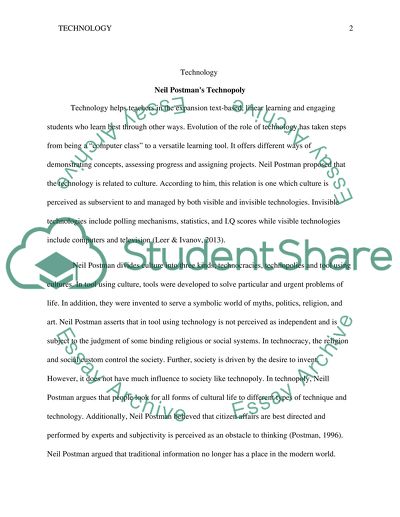Neil Postman's Technopoly and Raysa Leer's Rethinking the Future of Essay. Retrieved from https://studentshare.org/technology/1493912-critique-essay-neil-postman-stechnopoly-and-raysa
Neil Postman's Technopoly and Raysa Leer'S Rethinking the Future of Essay. https://studentshare.org/technology/1493912-critique-essay-neil-postman-stechnopoly-and-raysa.


